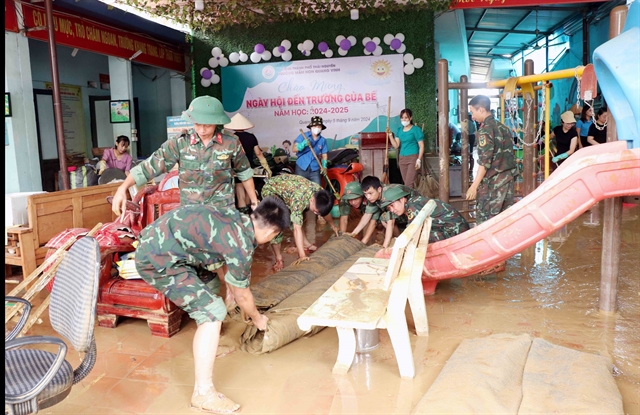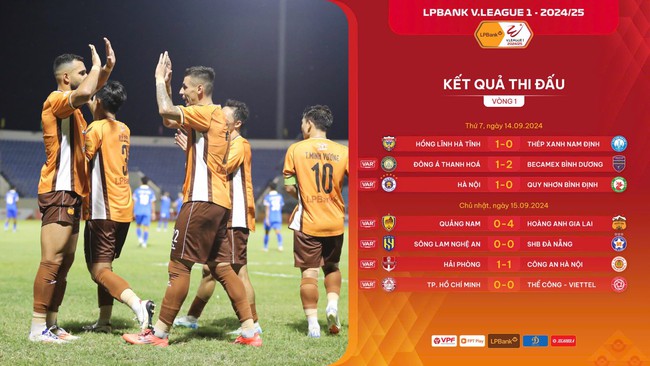▌Câu trả lời hay nhất
Supporting the Việt Nam Government’s response,link xem bóng đá vòng loại world cup 2022 UNICEF is on the ground identifying urgent needs and providing water supplies for distribution in three of the most impacted provinces.
 |
| The military forces clean a pre-school in Thái Nguyên City after the flooding. VNA/VNS Photo Trần Trang |
HÀ NỘI — The United Nations International Children's Emergency Fund (UNICEF) has provided water supplies to Government partners for distribution to households, hospitals, health facilities and schools in three provinces which are among those most affected by typhoon Yagi.
UNICEF has urgently dispatched 80,000 water purification tablets for the Centre of Disease Control in Thái Nguyên Province and 4,000 litres of water to Lào Cai Provincial Hospital to ensure drinking water for 800 people.
The UN fund will also be delivering water purification tablets, water tanks, ceramic filters, hand sanitisers and soap to households, schools and healthcare facilities in Yên Bái and Lào Cai provinces.
"UNICEF is committed to urgently providing sustained support to the Government of Việt Nam to ensure children and families have access to essential services," said Silvia Danailov, UNICEF’s Representative in Việt Nam.
“We have already started to deliver life-saving support and are mobilising resources to address the massive needs.
"Too many children have had their access to essential services like clean water, sanitation, healthcare and education cut off and swift action to restore these lifelines is urgently needed. The devastation caused by the typhoon is a tragic reminder of the disproportionate impact extreme weather events, intensified by climate change, have on children,” she said.
Nearly 19 million people, including 5.5 million children, live in the hardest-hit provinces, including Lào Cai, Tuyên Quang, Cao Bằng, Yên Bái, Quảng Ninh, Hải Phòng, Hà Nội, Thái Bình, Hải Dương, Hoà Bình, Thái Nguyên and Phú Thọ provinces.
Typhoon Yagi ravaged 26 northern provinces, leaving 324 people dead or missing, including 24 children. It has damaged an estimated 141,469 homes, 550 health facilities and 805 schools, while around 400,000 homes lack access to safe water.
Approximately two million children have been left without access to education, psychosocial support and school feeding programmes.
National authorities have issued a warning for continued heavy rain, with flash floods and landslides still devastating villages and communities in the northern provinces of the country which are home to a large number of vulnerable communities, including ethnic minorities.
In response to the Government of Việt Nam's strong and commendable efforts to address the disaster's impact, UNICEF is focusing on several key interventions, including water, sanitation supplies and safe storage solutions to households, health facilities and schools.
UNICEF is also delivering emergency medical supplies such as vaccines, malnutrition treatments, nutrition supplements and hygiene kits to health centres in the most affected areas.
To support the reopening of schools, UNICEF is offering temporary learning spaces and educational materials for children affected by the trauma of the disaster. Additionally, emergency kits containing essential items, including educational tools and support materials, are being distributed to children and families.
UNICEF is also providing humanitarian cash assistance to the most vulnerable households, particularly those with children and pregnant women.
They say they are currently mobilising resources to ensure emergency aid is urgently provided. An initial US$11 million is urgently required to be able to deliver on its mandate to assist the most vulnerable children. — VNS












